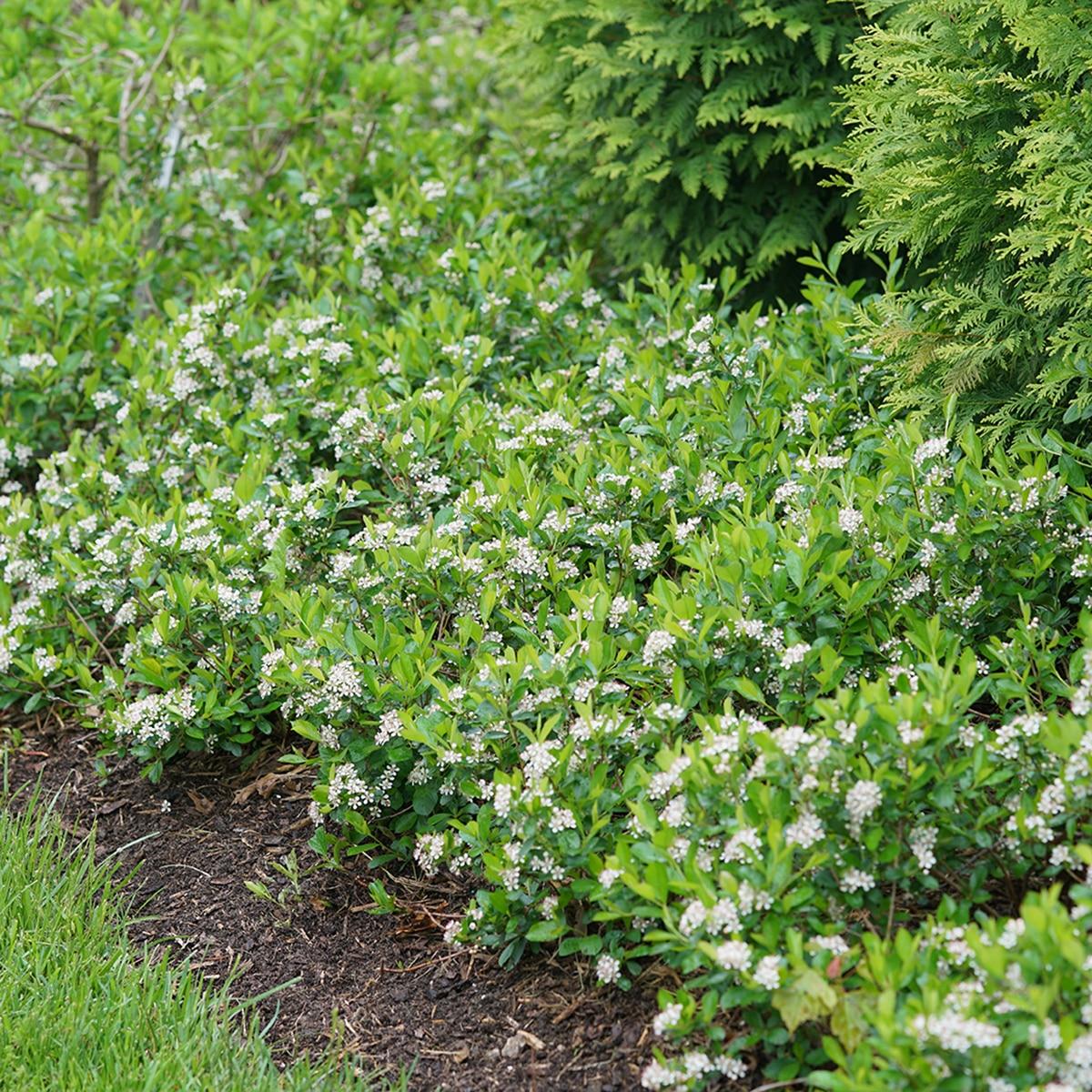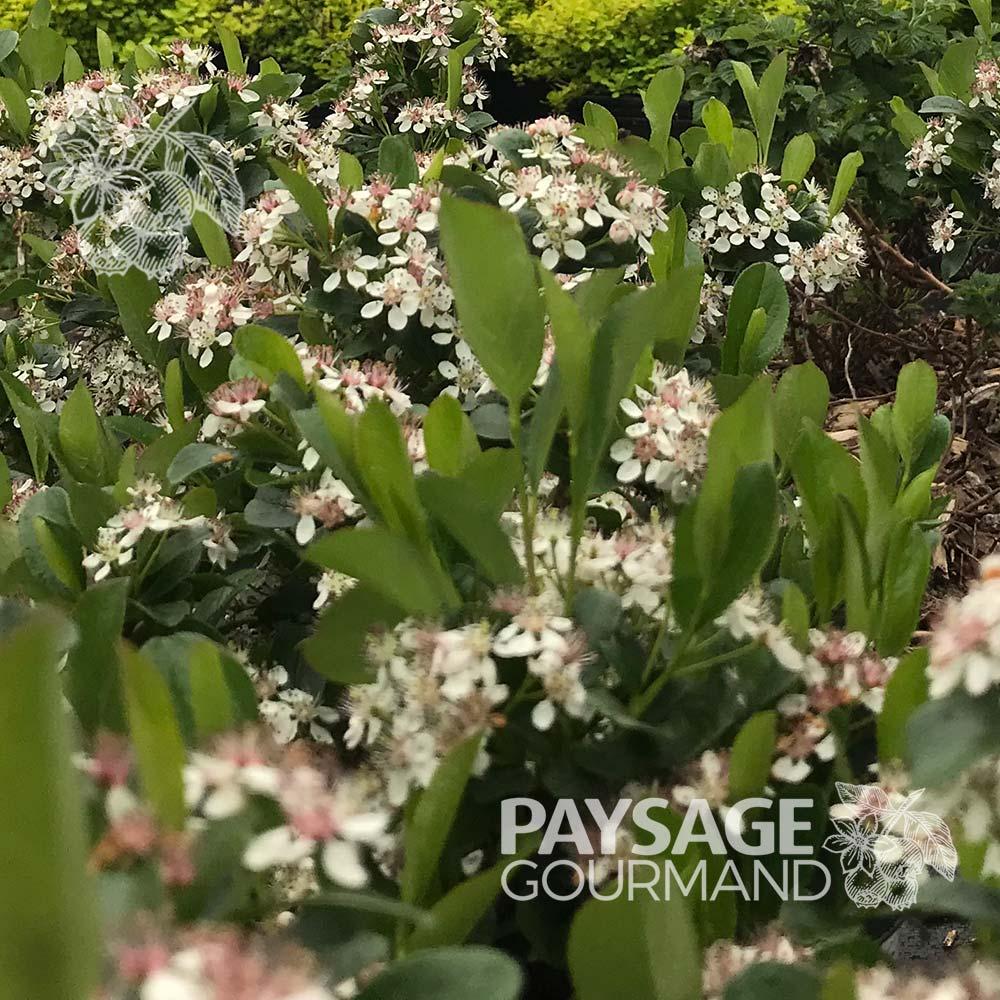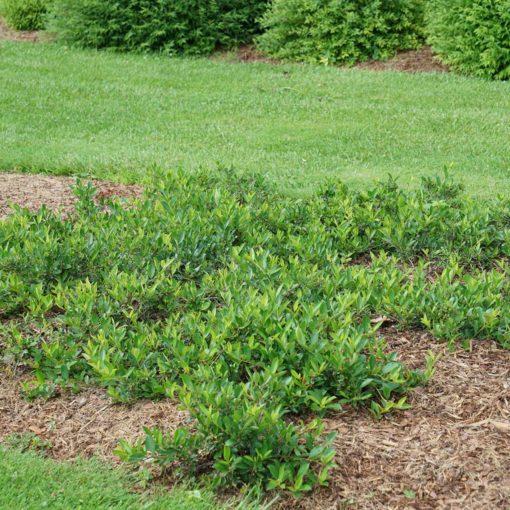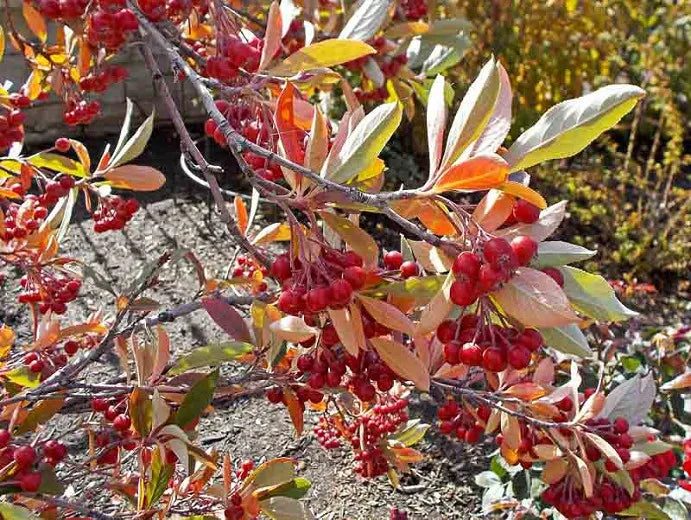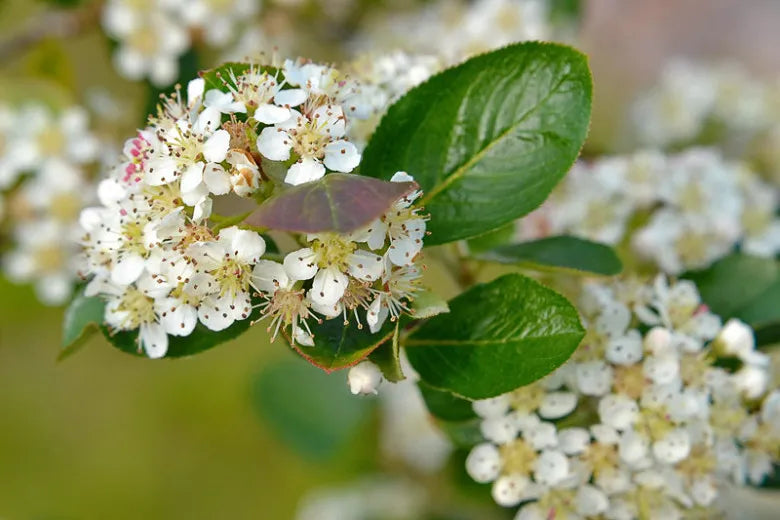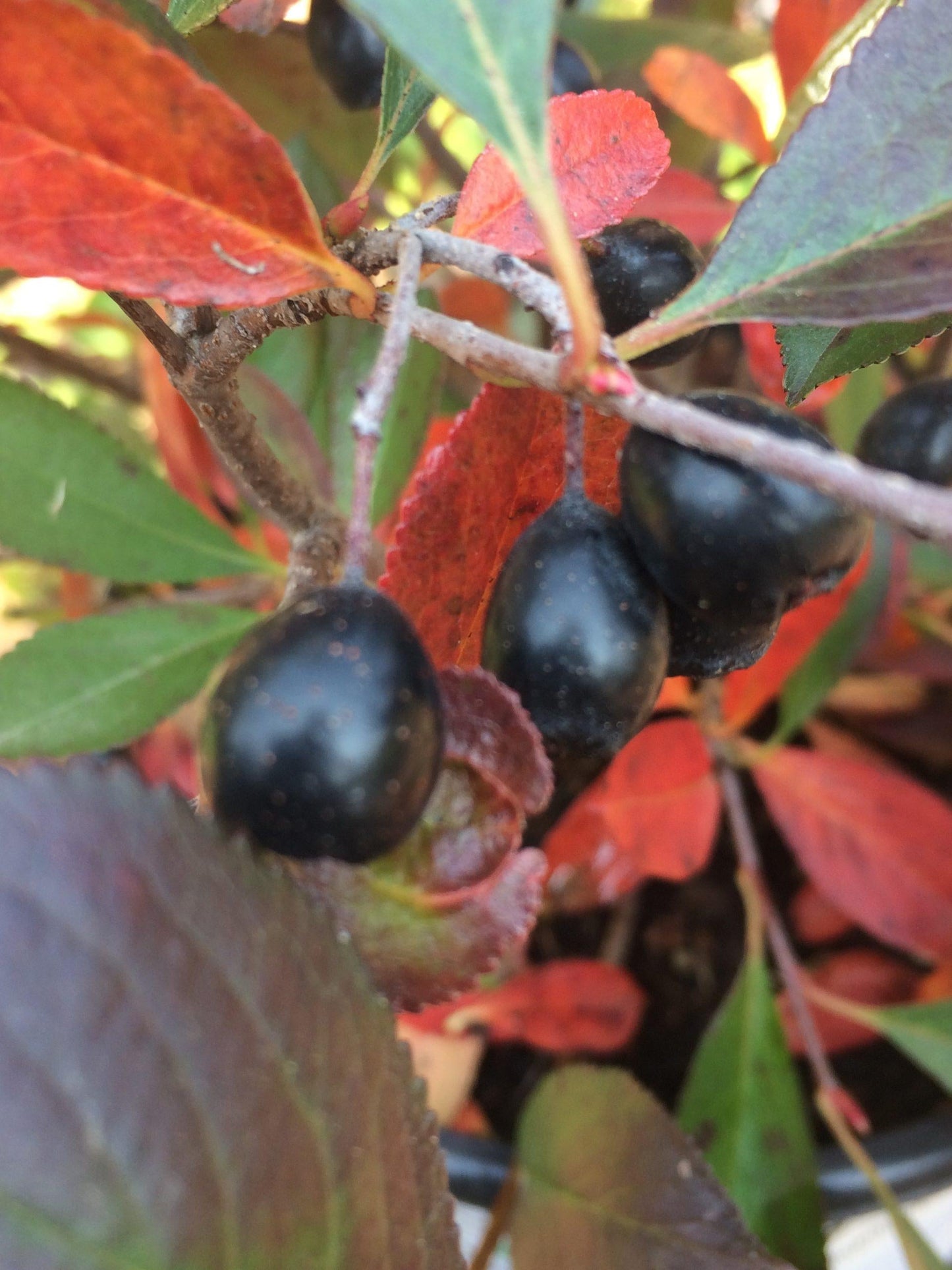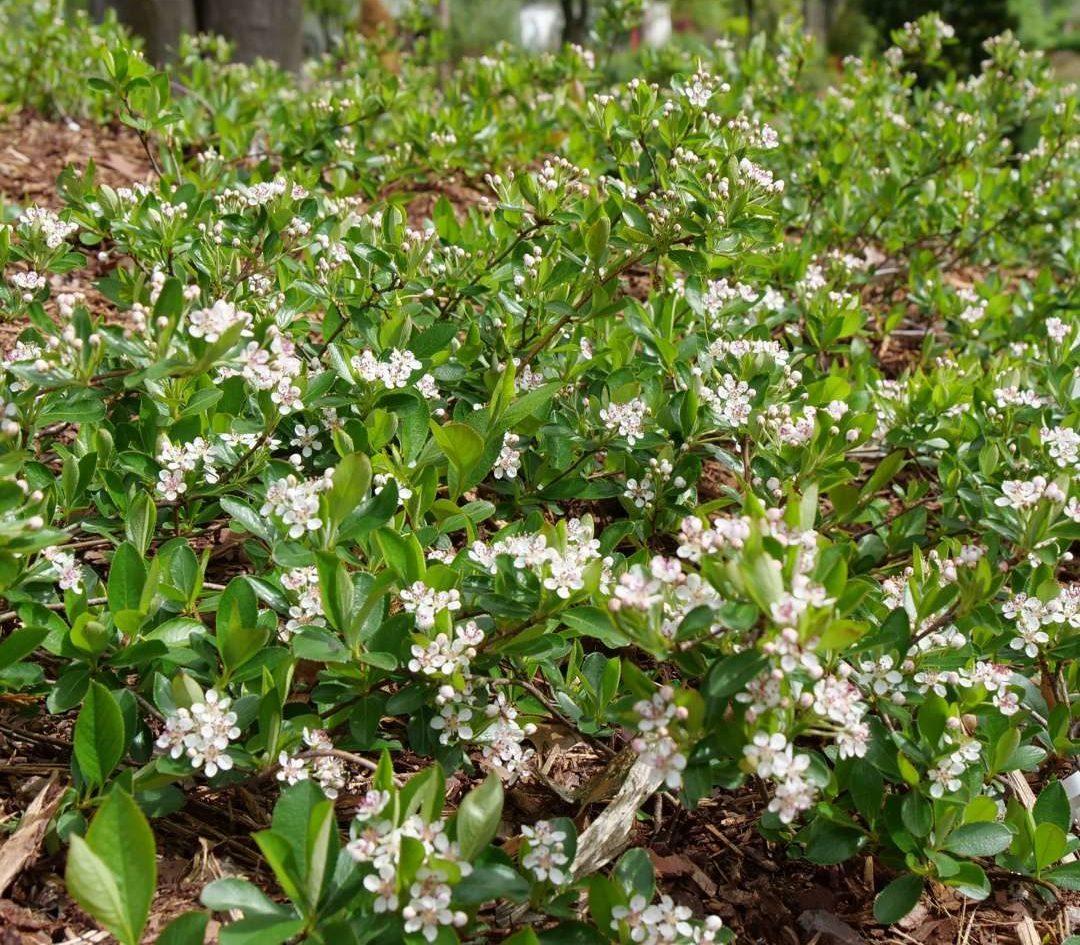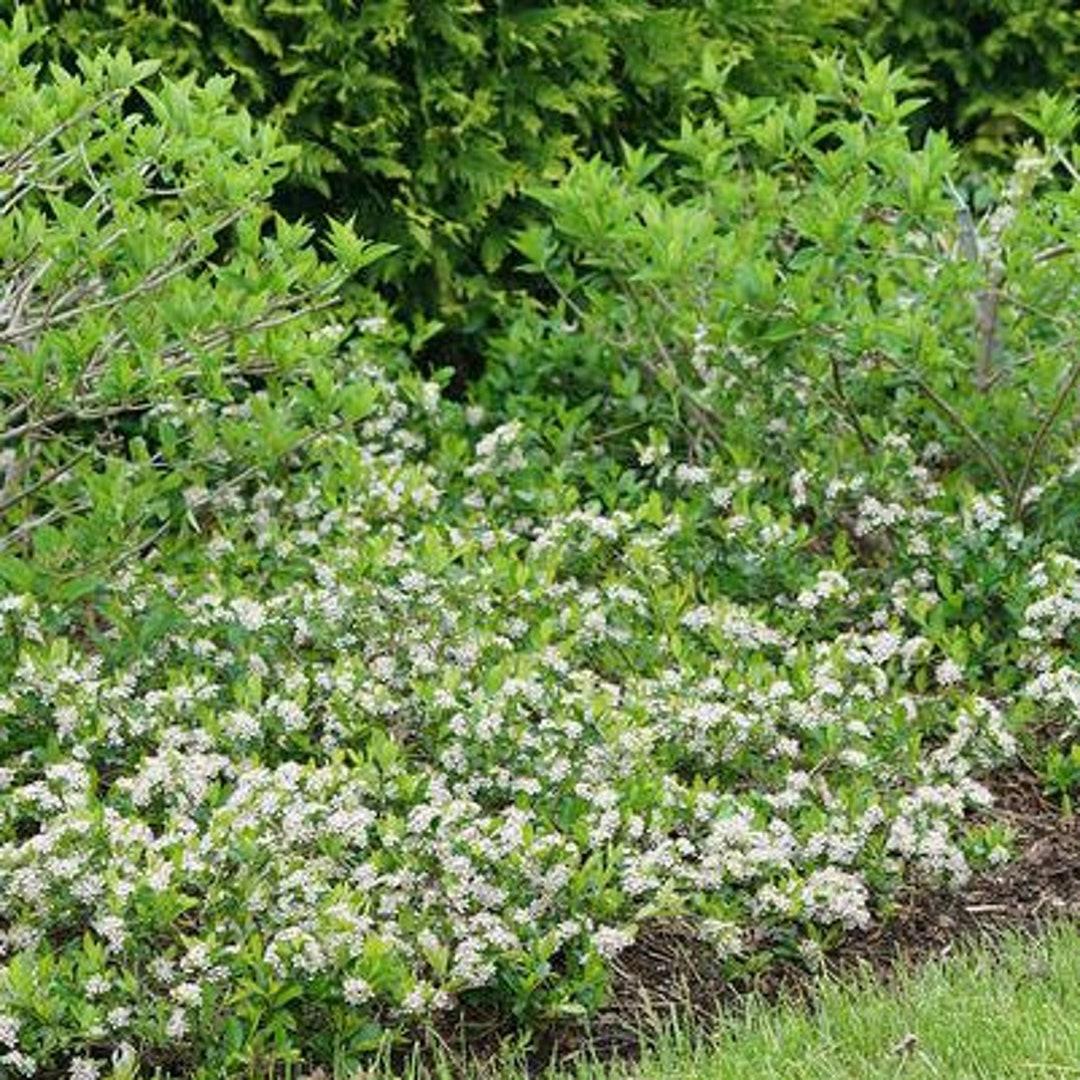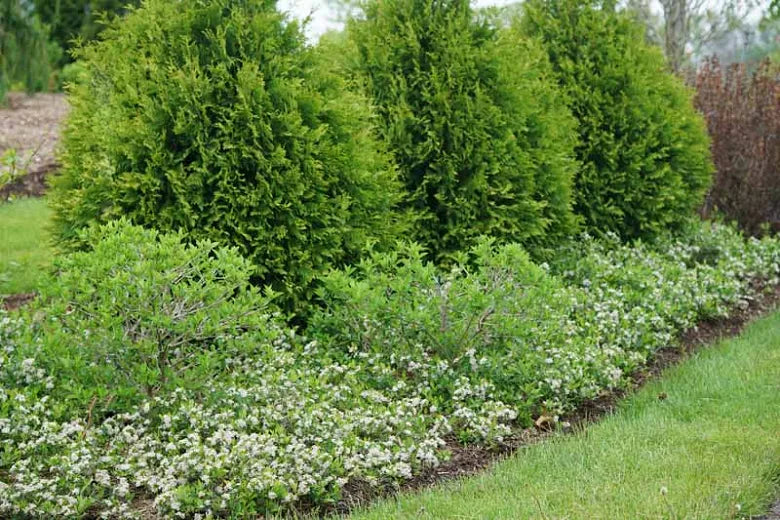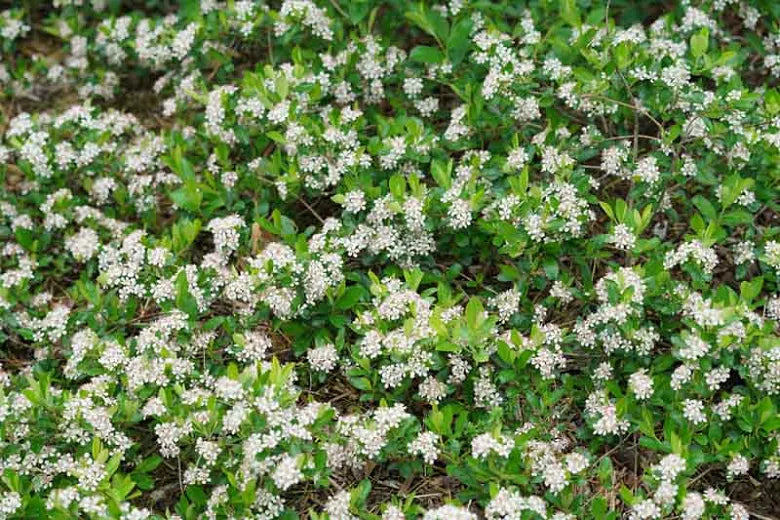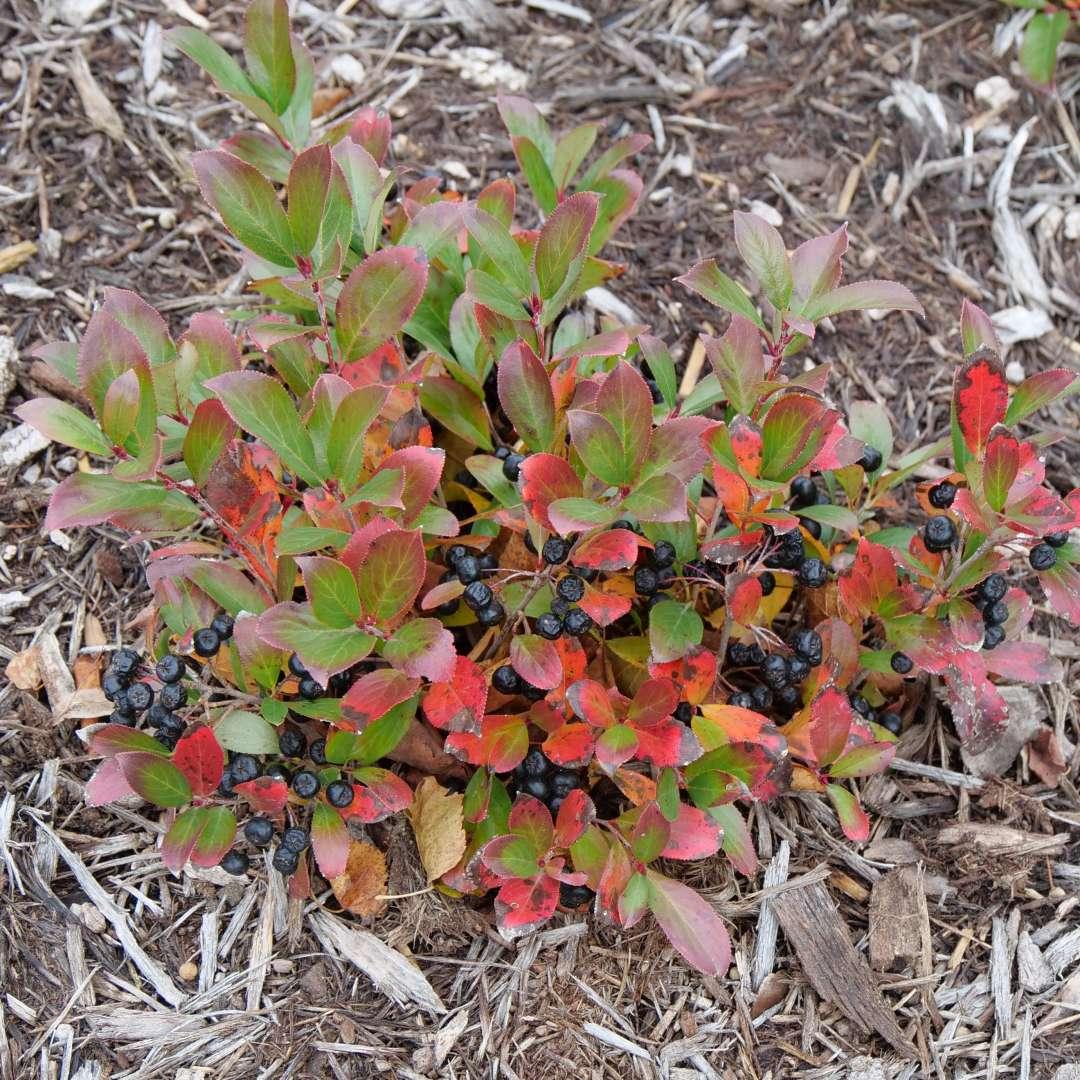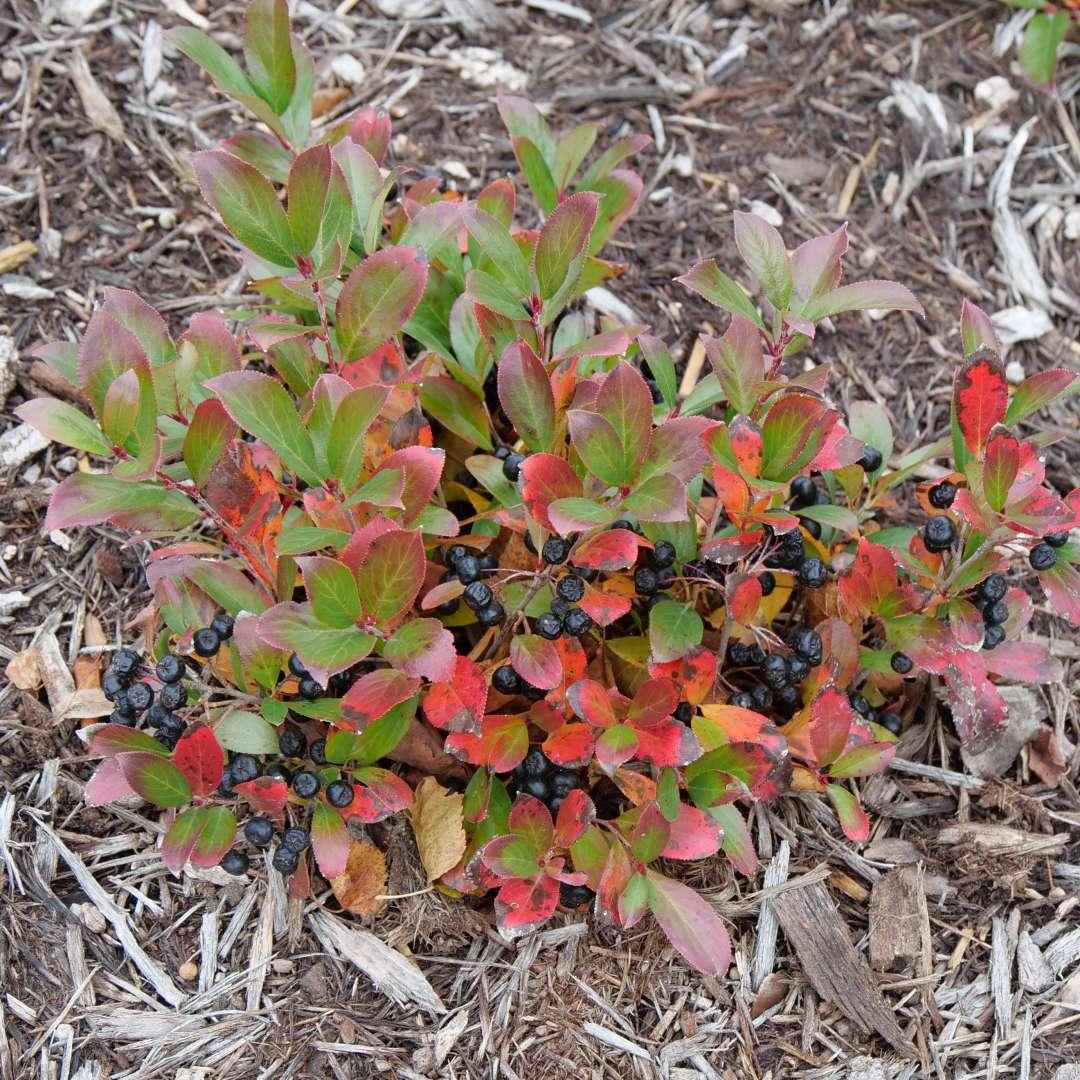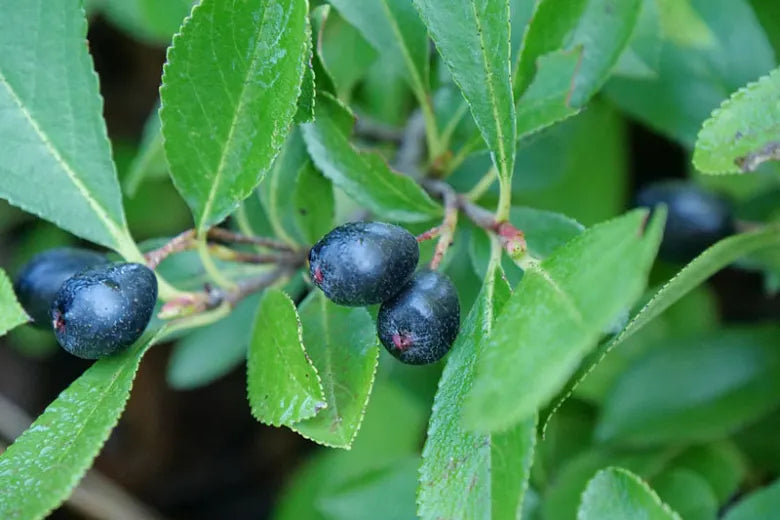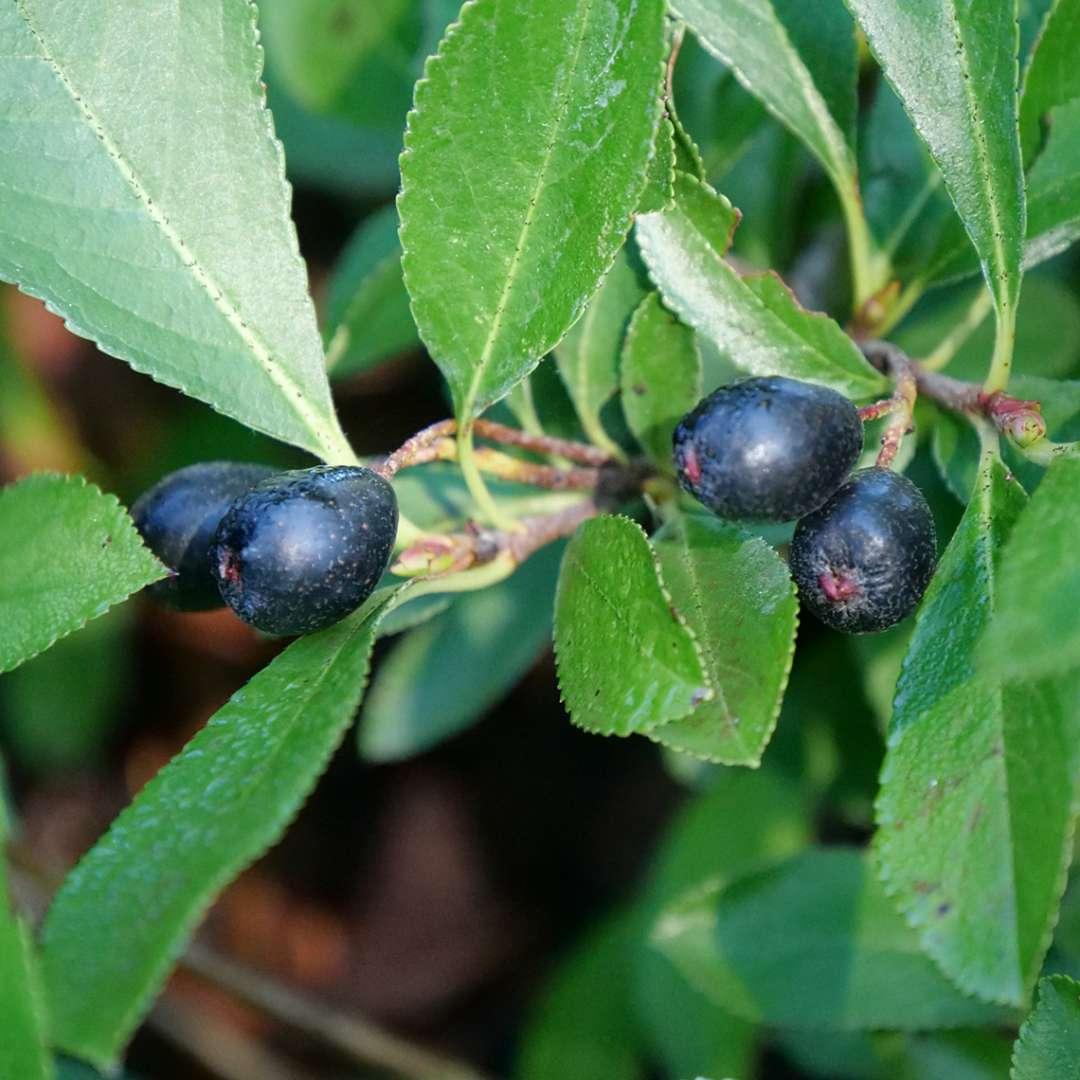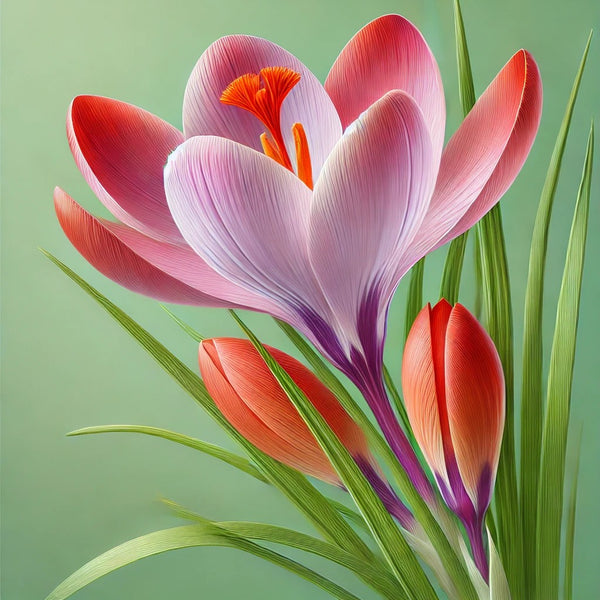1
/
of
20
Ground Hog Black Chokeberry-Ground Hug-Ideal for Erosion Control 3 Gallon
Ground Hog Black Chokeberry-Ground Hug-Ideal for Erosion Control 3 Gallon
Regular price
$160.00 USD
Regular price
$208.00 USD
Sale price
$160.00 USD
Unit price
/
per
Shipping calculated at checkout.
SKU:nsf7498-redcrocus
Couldn't load pickup availability
Aronia melanocarpa 'Ground Hug'
Description
Aronia melanocarpa 'Ground Hug', commonly known as 'Ground Hog' Black Chokeberry, is a low-growing, spreading shrub that offers a dense mat of glossy green foliage. In spring, it produces clusters of small white flowers, followed by black berries in late summer. The foliage turns a stunning red in the fall, adding seasonal interest to any landscape.
Suggested Uses
This plant is ideal for ground cover, erosion control, and wildlife gardens. It can be used in mass plantings, borders, or as an underplanting for taller shrubs and trees. Its berries attract birds, making it a great choice for naturalized areas.
Plant Details
-
 Botanical Name: Aronia melanocarpa 'Ground Hug'
Botanical Name: Aronia melanocarpa 'Ground Hug' -
 Common Name: 'Ground Hog' Black Chokeberry
Common Name: 'Ground Hog' Black Chokeberry -
 Size & Growth: 1-2 feet tall, 3-4 feet wide
Size & Growth: 1-2 feet tall, 3-4 feet wide -
 Hardiness Zones: 3-8
Hardiness Zones: 3-8 -
 Foliage Type: Deciduous
Foliage Type: Deciduous -
 Bloom Time: Spring
Bloom Time: Spring -
 Growth Rate: Moderate
Growth Rate: Moderate -
 Light Requirements: Full sun to partial shade
Light Requirements: Full sun to partial shade -
 Attracts Pollinators: Yes, especially bees
Attracts Pollinators: Yes, especially bees -
 Indoor Friendly: No
Indoor Friendly: No -
 Container Friendly: Yes
Container Friendly: Yes -
 Deer Resistant: Yes
Deer Resistant: Yes -
 Pet Warning: Berries are non-toxic but may cause mild stomach upset if ingested in large quantities
Pet Warning: Berries are non-toxic but may cause mild stomach upset if ingested in large quantities -
 Fragrant: No
Fragrant: No -
 Cut Flower: No
Cut Flower: No -
 Grows Well With: Other native shrubs and perennials
Grows Well With: Other native shrubs and perennials
Care Tips
-
 Planting Instructions: Plant in well-drained soil, spacing plants 3-4 feet apart
Planting Instructions: Plant in well-drained soil, spacing plants 3-4 feet apart -
 Soil Moisture: Prefers moist soil but can tolerate some drought
Soil Moisture: Prefers moist soil but can tolerate some drought -
 Soil Type: Adaptable to a range of soil types, including clay and sandy soils
Soil Type: Adaptable to a range of soil types, including clay and sandy soils -
 Humidity: Tolerant of a range of humidity levels
Humidity: Tolerant of a range of humidity levels -
 Pruning Instructions: Prune in late winter to early spring to maintain shape and remove dead wood
Pruning Instructions: Prune in late winter to early spring to maintain shape and remove dead wood -
 Winter Care: Mulch to protect roots in colder zones
Winter Care: Mulch to protect roots in colder zones -
 Planting Depth: Plant at the same depth as in the nursery pot
Planting Depth: Plant at the same depth as in the nursery pot -
 Fertilization: Fertilize in early spring with a balanced fertilizer
Fertilization: Fertilize in early spring with a balanced fertilizer -
 Special Care: Monitor for pests and diseases, though generally pest-free
Special Care: Monitor for pests and diseases, though generally pest-free
Share
